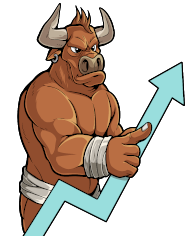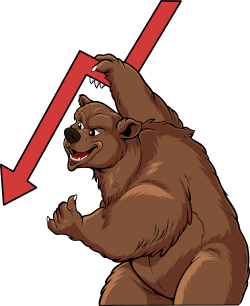ABBVAbbvie Inc
Company Overview
Name
52W High
52W Low
Market Cap
Dividend Yield
Price/earnings
P/E
Dividends
No dividend
Sentiment
Score
Mixed
50
Low
Neutral
High
0
50
100
Trade Volume
Score
Neutral
50
Low
Neutral
High
0
50
100
Income Statement
Total Revenue
Operating Revenue
Total Gross Profit
Total Operating Income
Net Income
EV to EBITDA
EV to Revenue
Price to Book value
Price to Earnings
Additional Data
Selling, General & Admin Expense
Research & Development Expense
Other Operating Expenses / (Income)
Total Operating Expenses
Interest & Investment Income
Other Income / (Expense), net
Earnings History
Estimated EPS
Reported EPS
N/ACompany Overview
Name
52W High
52W Low
Market Cap
Dividend Yield
Price/earnings
P/E
Dividends
No dividend
Sentiment
Score
Mixed
50
Low
Neutral
High
0
50
100
Trade Volume
Score
Neutral
50
Low
Neutral
High
0
50
100
Income Statement
Total Revenue
Operating Revenue
Total Gross Profit
Total Operating Income
Net Income
EV to EBITDA
EV to Revenue
Price to Book value
Price to Earnings
Additional Data
Selling, General & Admin Expense
Research & Development Expense
Other Operating Expenses / (Income)
Total Operating Expenses
Interest & Investment Income
Other Income / (Expense), net
Earnings History
Estimated EPS
Reported EPS
N/AUpcoming Earnings
Company Info
CEO
Richard A. Gonzalez
Location
Illinois, USA
Exchange
NYSE
Website
https://abbvie.com
Summary
AbbVie Inc.
Company Info
CEO
Richard A. Gonzalez
Location
Illinois, USA
Exchange
NYSE
Website
https://abbvie.com
Summary
AbbVie Inc.
Community Research
Research from investors like you
Be the first to share your analysis on ABBV
Help fellow investors make informed decisions by sharing your research on fundamentals, catalysts, and outlook.
Symbol's posts
ABBV keeps rewarding patience
ABBV keeps rewarding patience
Abbvie, ticker symbol , has managed to weather the storm of life after Humira much better than many thought. That is because of its cash flows, its pipeline, as well as its shareholder-friendly activities. Not exactly exciting, but boring is good in many cases. Want to know what I think of ABBV? Is it a healthcare holding staple, or one that’s appreciated by you only during volatile market conditions?
Market recap: Tech sells off, AMD tanks 17%, and Texas Instruments buys Silicon Labs
Market recap: Tech sells off, AMD tanks 17%, and Texas Instruments buys Silicon Labs
:max_bytes(150000):strip_icc()/GettyImages-2207393879-4a45c1fddbda46ed808e829fbba39867.jpg)
www.investopedia.com
| Stock Market Today: Futures Tick Higher After Indexes Tumble; AMD Shares Drop; Gold, Silver Extend Rebound
RVMD drops 17% after Merck acquisition talks reportedly stall
RVMD drops 17% after Merck acquisition talks reportedly stall

finance.yahoo.com
| Why Revolution Medicines Stock Plummeted by Almost 17% Today
Merck ends talks to acquire Revolution Medicines over valuation
Merck ends talks to acquire Revolution Medicines over valuation
finance.yahoo.com
| MSD ends takeover talks with Revolution Medicines
Three healthcare stocks for a long-term hold
Three healthcare stocks for a long-term hold

www.fool.com
| The Best Healthcare Stocks to Buy With $5,000 in 2026 and Hold Forever | The Motley Fool
Summary of 20 high-yield dividend stock picks for 2026
Summary of 20 high-yield dividend stock picks for 2026

www.fool.com
| 20 High-Yield Dividend Stocks for January 2026 | The Motley Fool
AbbVie Strikes Pricing Deal With Trump Administration
AbbVie Strikes Pricing Deal With Trump Administration
has reached an agreement with the Trump administration to address upcoming U.S. drug pricing reforms. The deal is aimed at providing more clarity and flexibility around how new pricing rules for Medicare and Medicaid will be implemented, helping AbbVie reduce regulatory uncertainty while avoiding harsher mandatory controls. For AbbVie, the agreement could protect long-term revenue visibility as pricing pressure on big pharma continues to rise. For policymakers, it signals a more cooperative approach with drugmakers rather than aggressive enforcement. The move may also set a precedent for how other pharmaceutical companies negotiate future pricing frameworks. Will this encourage more pharma companies to cut deals with regulators, or does it risk slowing real progress on lowering drug costs for patients?
HDV dividend distributions fell 5% in 2025, lagging S&P 500 returns
HDV dividend distributions fell 5% in 2025, lagging S&P 500 returns

finance.yahoo.com
| What Retirees Need To Know About HDV's Dividend Before Buying
ABBV Holding Strong
ABBV Holding Strong
Even with worries about Humira's patent, AbbVie holds steady. Fresh medications gain ground while money coming in stays strong, dividends still pull interest. Needs for health care stick around, so companies such as this one tend to catch attention from those building lasting income streams.
Summary of 5 stocks recommended for long-term holding
Summary of 5 stocks recommended for long-term holding

www.fool.com
| The Best Stocks to Invest $50,000 in Right Now | The Motley Fool







